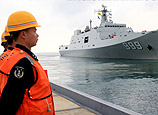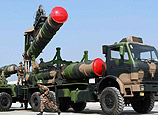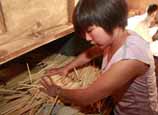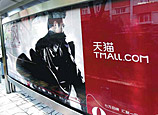
"China and the EU are not only working together through the simple relationship of sell and buy," Yu Hongjun, vice-minister of International Department of Central Committee of Communist Party of China, said during the China-European Economic Partnership in New Era in January.
"Trade frictions between the two regions are inevitable as the Sino-EU economic relationship grows. The two sides are now negotiating investment agreements. If breakthroughs can be made, we believe the bilateral economic relationship can reach heights."
China and the EU could also start investment talks in the coming months, says Wu Hailong, the Chinese ambassador to the EU.
The EU has been a major source of China's foreign direct investment and has been an attractive destination for China's outbound direct investment.
According to the Ministry of Commerce, China has signed investment agreements with more than 100 countries and regions including Germany and France.
The EU has been a top investor in China, with $6.11 billion invested last year, the ministry says. China's investment in the EU has gained momentum since the financial crisis began to unfold.
In 2011, China's investment in the EU rose to $4.3 billion, from just $100 million in 2003. During the first half of 2012, China invested more in the EU than the bloc invested in China.
Helping hand
Chinese companies' growth in Europe has benefited many European businesses that typically work as their local distributors, suppliers or consultants.
Chinese lighting company NVC Lighting Technology, whose decision to manufacture some of its products in Birmingham, has brought growth to many component suppliers in Europe, including Tridonic, Helvar Mackwell and CP Electronics.
Kelvin Lay, of Helvar, a component supplier for NVC UK, says the company's use of European manufactured components for products sold in Europe shows its commitment to quality.
Paul Mans, managing director of CP Electronics, a British company that supplies censors to NVC UK, says the company's investment for a full support team in the UK also helps to build trust.
"In the UK, the biggest issue with importing products from China is not knowing if potential problems can be sorted out. But because NVC has a large office in the UK with lots of people with the technical expertise to help the customers, it reassures people that if a problem occurs, it can be sorted out," Mans says.
As a young business established in 2007, NVC UK already supplies to about 1,500 out of 3,500 electrical wholesalers in the UK, says director Garry Pass.
Another example of local businesses benefiting from Chinese companies' expansion is the British engineering consultancy Ricardo Plc, which recruited about 100 employees in the UK after winning a contract with the Chinese carmaker SAIC Motor Corporation Ltd in 2005.
Ricardo's task was to help SAIC establish a research and development center in the UK, training SAIC's engineers to understand how to make full use of the technology relating to the Rover 75 and Rover 25, which SAIC bought from MG Rover after the British carmaker collapsed that year.
Located in the English Midlands, the R&D center employed about 200 engineers, many of whom were former MG Rover employees.
Gary Tan, Asia president of Ricardo, says one rationale for establishing the R&D centre in the UK as opposed to China was the availability of highly skilled engineers in the English Midlands after MG Rover's collapse.



















![]()
